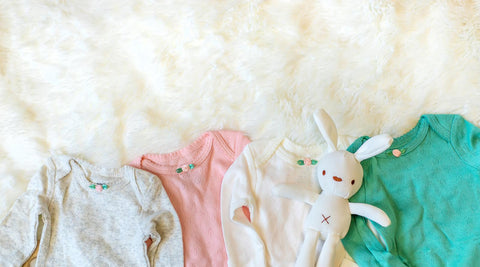If you’re a first-time expecting parent, the thought of buying baby stuff can be overwhelming. It’s important to consider both budget and lifestyle when making decisions about what you need and when to get it.
Knowing how much time you have before your baby arrives can help you make smart decisions about purchasing items for your little one. Let’s take a look at some key factors that will influence when it is the right time to start buying baby stuff.
Timing Is Everything
Most experts recommend waiting until at least 20 weeks into your pregnancy before buying any big ticket items for your baby's arrival. This gives you a good amount of time to research all the different brands and products available, as well as decide on what works best for your family's lifestyle.
Many stores offer discounts or special promotions during this time, so it could save you money in the long run if you wait until then to invest in larger items such as baby furniture or car seats.
Furthermore, waiting until later in your pregnancy allows for more accurate predictions about when your due date will be, which helps with timing purchases such as diapers or formula—items that will expire quickly once opened.
Making Registry List
One way to prepare for unexpected events is by creating a registry list ahead of time. The registry list allows friends and family members who are looking for gift ideas an opportunity to purchase something that you truly need for the new addition to your family.
Keeping track of what has been purchased from the baby registry also helps prevent duplicates from being bought (no one wants six sets of bottles!). Additionally, creating a registry list before going out shopping ensures that you don't buy something unnecessary or spend more than necessary on items already purchased by others.
Read More: How To Get Toddler To Tell You When They Need To Potty?

Get Your Budget In Order
No matter how early or late you decide to buy baby clothes, the most important factor is how much you can afford. Make sure that any budget set aside for the new arrival includes non-negotiable items such as diapers and formula, as well as other expenses like healthcare and childcare if applicable.
What Should You Buy?
It can be tempting to buy everything on sight when you start shopping for a new baby, but it’s important to remember that babies grow quickly and will outgrow most items within a few months.
To ensure that you’re getting the most from your money, consider purchasing things like furniture and strollers secondhand. Additionally, many items such as baby clothes or toys can be found at great prices at yard sales or thrift stores.
Additionally, babies don’t need much in those first few months beyond the essentials like diapers, wipes, baby clothes (onesies are a must!), bottles, blankets, and toys (for older babies). It may also help if you create a list of items you want ahead of time so that you can shop efficiently when the time comes.

When To Start Buying Baby Stuff?
In the second trimester of pregnancy when it comes to buying baby's gender-specific items such as adorable baby clothes, most couples opt to wait until the second trimester of their pregnancy when they know what gender their baby is.
If friends and family members are throwing you a baby shower, this could be the perfect time to ask for certain items that you need for your new arrival.
Things To Consider While Buying Baby Stuff
Read on to learn some tips and tricks on how to make sure you get the best products for your little one.
Safety First:
The most important thing to consider when buying anything for a baby is safety. Look at product reviews and do research on recalls before purchasing anything to ensure that it meets safety standards.
Check expiration dates on food products and don’t forget about any other potential hazards such as cords or small parts that could be swallowed by curious babies.
Read More: How To Get Your Baby To Sleep Without Being Held?
Comfort Matters:
When it comes to clothes, comfort should always come first! Make sure you buy clothes made from natural fibers such as cotton or bamboo that are both soft and breathable against the baby’s delicate skin.
Also look out for tags and seams that can cause irritation, as well as buttons or snaps that may be difficult to open or close easily in a hurry.

Quality Over Quantity:
Invest in quality pieces rather than quantity when shopping for your baby – this applies especially when it comes to furniture such as cribs, high chairs, strollers, etc., which tend to be more expensive but will last much longer than their cheaper counterparts.
You may also want to opt for gender-neutral items if you plan on having more than one child, so they can share them without feeling like they have “the boys' stuff” or “the girls' stuff” – plus this way you won't have to buy twice.
Read More: Why Do Babies Sleep With Their Arms Up?
Conclusion
Buying baby stuff can be an overwhelming task, but by taking the time to plan and research products that are within your budget and meet safety standards, you can ensure that you’re investing in quality items for your newborn.
Start shopping early so that you have plenty of time to get everything you need before the due date. And don't forget to ask friends and family members for help – they may have some great recommendations or even hand-me-downs that could save you money.

